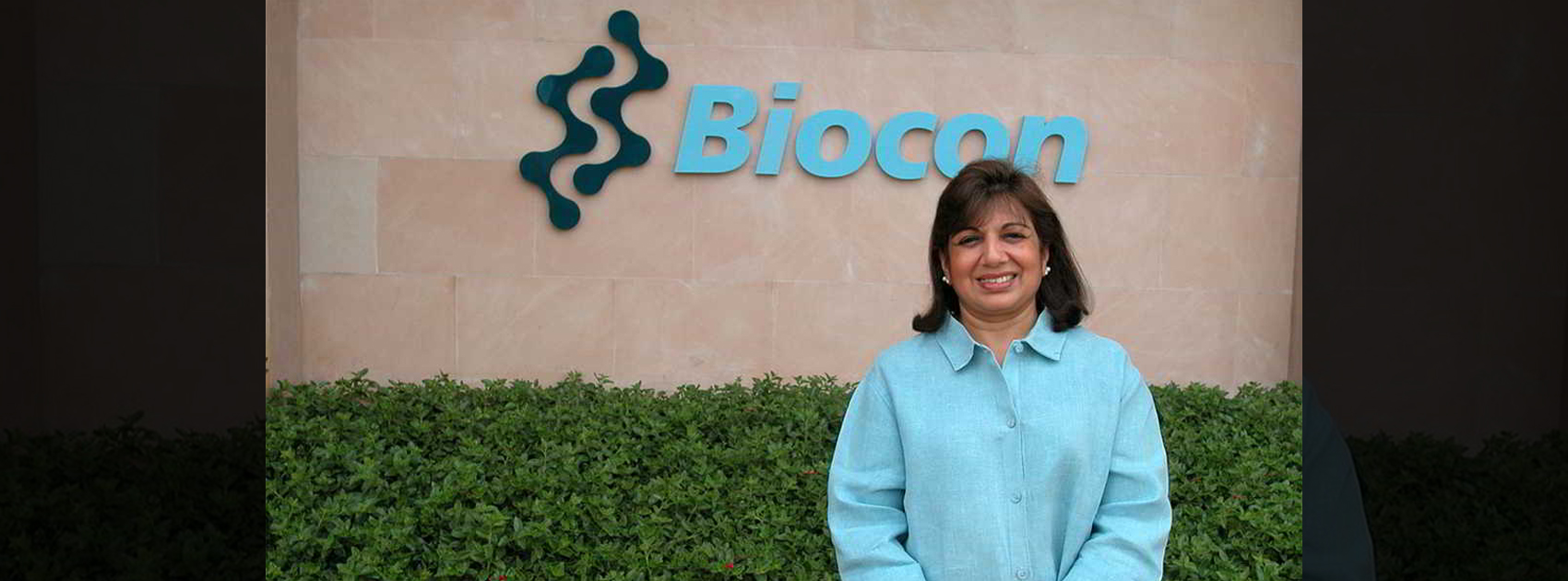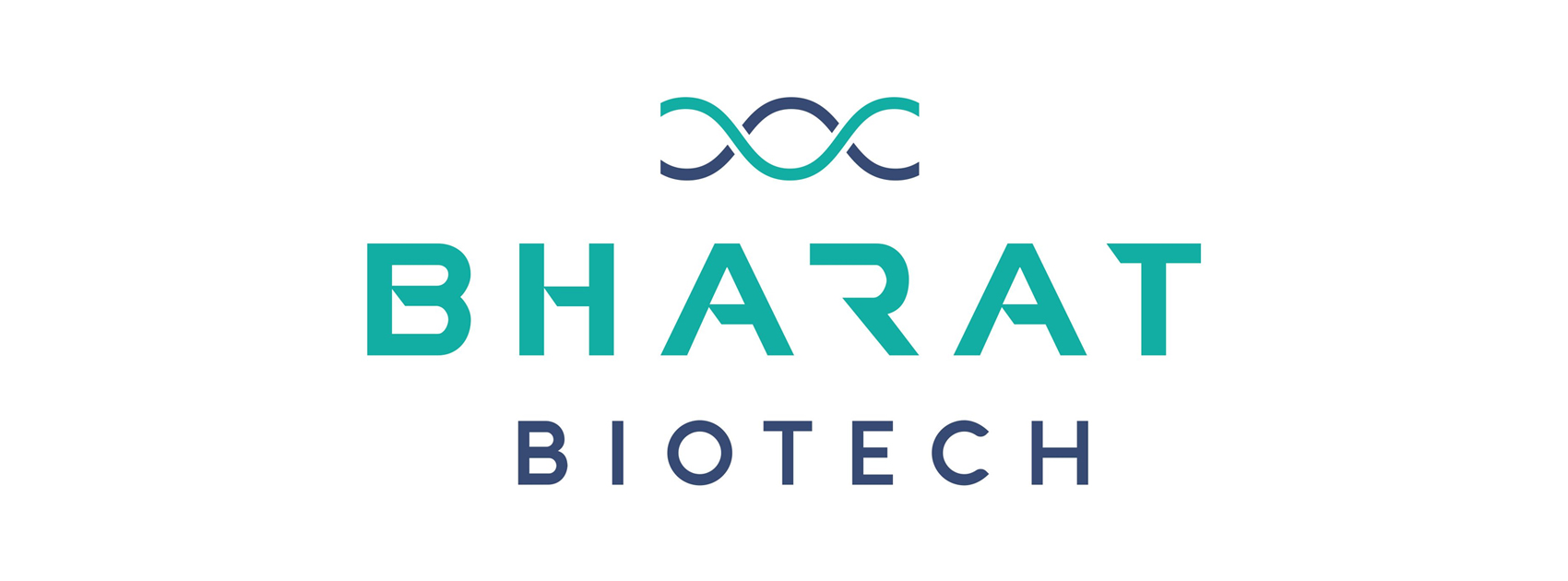Stories
Best Biotechnology Startups In India

The biotechnology industry is one of the fastest growing segments in India. Valued at 11 billion USD in 2018, the Indian biotechnology industry is expected to touch the 100 billion USD mark by 2025, according to the Association of Biotechnology Led Enterprises (ABLE.) With more and more people choosing biotechnology as a career, there is ample chance of success in this field. We will be looking at the biotechnology startups which paved the way for the blooming biotechnology industry in India.
Best Biotechnology Startups In India
1)Biocon

This Bangalore based company is the largest biopharmaceutical company in India. Founded in 1978 with a budget of Rs. 10,000, Biocon started as a company selling the enzyme papain. In the 1990s, founder Kiran Mazumdar-Shaw decided to change the focus of the Company from selling enzymes to selling biopharmaceuticals. Subsequently, Shaw became one of the richest women in India. Today, Biocon sells insulin and monoclonal antibodies, among other products. The Company had an annual revenue of Rs. 4,709 crores in 2018.
2)Sea6 Energy

This startup was founded in 2010 by four IIT Madras graduates and works towards the development of scalable solutions to solve the problem of overconsumption of energy in India. The Company is developing techniques to convert photosynthetic biomass like plants and algae to fuels, in an effort to battle the increasing commercial use of energy in the Country. Incubated at the Centre for Cellular and Molecular Platforms (C-Camp) and funded by the Department of Biotechnology, the startup has patented techniques to facilitate large scale cultivation of selected sea plants.
3)Bharat Biotech

Headquartered at Hyderabad, this Company was founded in 1996 by an Indian scientist, Krishna Ella. One of the leading biopharmaceutical companies in India, Bharat Biotech was the first to develop and patent vaccines for the Zika virus, Zikavac, in the world. It is the first pharmaceutical company to develop a generic drug in India.
4)GANIT Labs

Founded in 2010 in Bangalore by Dr. Vinay Panda and Dr. Vijaya Chandru, Genomics Application and Information Technology Labs (GANIT Labs) is an independent government funded startup. GANIT Labs studies genomes related to oral cancer and helps in mapping their genes. It is also involved in creating analytical tools which effectively analyse and manage large scale genome data, mainly from genome sequencing of disease tissues like cancer.
5)MedGenomes

Founded by Sam Santosh in 2013, MedGenomes provides personalised genetic tests and medicines for a range of ailments like cancer, diabetes and neurological ailments. The Company has headquarters in the U.S.A., and India and claims to operate the largest next gen sequencing lab in southeast Asia. In 2017, the Company secured a whopping Rs. 192 crores in funding. In 2018, MedGenomes was given the MedTech Breakthrough Award for Biomedical Research.
With the growth of the biotechnology industry and a renewed interest of investors in it, the success story of these biotechnology startups will inspire many biotechnology entrepreneurs out there who are aspiring to start their own company one day.
Entrepreneur Stories
Zupee Bolsters Short-Video Play with Vertical TV Acquisition Under INR 40 Cr

Delhi NCR-based gaming startup Zupee has acquired Mumbai-based microdrama platform Vertical TV in a deal valued under INR 40 Cr. This move strengthens Zupee Studio, its short-video arm launched in September 2025, by integrating Vertical TV’s expertise in bite-sized dramas like romance and thrillers.
Facing challenges from India’s 2025 real-money gaming ban, Zupee valued at $1 Bn after raising $120 Mn has pivoted to non-gaming content, including recent layoffs of 40% of its workforce. The acquisition builds on its November 2025 purchase of Australian AI firm Nucanon for interactive storytelling, targeting its 200 Mn+ users with engaging, mobile-first formats.
This deal underscores the rising microdrama trend in India, helping Zupee diversify amid regulatory pressures and compete in the short-video space dominated by quick, shareable content for on-the-go audiences.
Videos
T.N. Seshan: The Fearless Reformer Who Redefined Indian Democracy

T.N. Seshan’s name stands tall in India’s history as the man who transformed the nation’s electoral system with extraordinary courage and integrity. Born in 1932 in Kerala, Seshan grew up with values of discipline, education, and service to the nation — virtues that shaped his illustrious journey. From his early brilliance at Madras Christian College to his advanced studies in public administration at Harvard University, Seshan’s path reflected rare determination and intellect. Joining the Indian Administrative Service in 1955, he built a reputation as a no‑nonsense officer committed to efficiency and honesty, serving in key roles such as Secretary of Defense and overseeing vital national programs.
As the Chief Election Commissioner of India in 1990, T.N. Seshan sparked a new era of electoral integrity. In a system once marred by corruption, violence, and malpractice, Seshan brought order, fear, and respect through his groundbreaking reforms. He introduced voter ID cards, imposed strict spending limits on campaigns, and insisted on transparency at every level of the election process. Despite criticism from political circles that labeled him dictatorial, his relentless pursuit of fairness empowered every citizen to vote fearlessly. Under his leadership, the Election Commission became a symbol of strength and integrity in Indian democracy.
Seshan’s passing in November 2019 marked the end of an era, but his message continues to resonate across generations. Leaders from every corner of the country mourned the loss of the man who restored faith in free and fair elections. His enduring legacy reminds us that true leadership lies not in wielding power, but in serving people with honesty, courage, and conviction. T.N. Seshan’s life remains a timeless inspiration a reminder that democracy thrives only when its citizens are vigilant, responsible, and fearless.
Entrepreneur Stories
Indian Man Quits JPMorgan, Takes 70% Pay Cut to Launch $6 Million Startup

Leaving behind a high-paying job at JPMorgan, an Indian entrepreneur embraced a 70% salary cut to pursue true purpose and passion in the startup world. Disenchanted with what he described as a “robotic” corporate routine, he sought meaningful work that made a real impact. This pivotal decision marked the beginning of his new journey, one focused on value creation rather than titles and corporate perks.
Powered by resilience and fresh perspective, the entrepreneur launched his own startup, prioritizing innovation and hands-on solutions. The road was challenging, but his vision resonated with the market: the startup quickly gained traction and raised $6 million—an impressive acknowledgement of its potential in a competitive landscape. Every hard lesson from early setbacks and bootstrapping paid off in real customer growth and investor confidence.
Today, his journey stands as an inspiring example for professionals seeking authentic success outside the corporate grind. By trading comfort for creative freedom, he grew a venture that solves important problems, generates jobs, and builds wealth beyond just salary. For ambitious founders, his story highlights the power of risk-taking, adaptability, and relentless focus on impact in India’s thriving startup ecosystem.













sites.Google.com
October 28, 2025 at 11:33 am
Great beat ! I wish to apprentice while you amend your web site,
how can i subscribe for a blog website? The account aided me a acceptable deal.
I had been a little bit acquainted of this your
broaddcast provided bright clear idea
Here is my website: sites.Google.com
Kuwin
November 5, 2025 at 11:00 am
kuwin sở hữu kho game đa dạng từ slot đến trò chơi bài đổi thưởng, mang đến cho bạn những giây phút giải trí tuyệt vời.
谷歌外推
November 9, 2025 at 5:42 pm
采用高效谷歌外推策略,快速提升网站在搜索引擎中的可见性与权重。谷歌外推
MM88
November 10, 2025 at 2:45 pm
Với giao diện mượt mà và ưu đãi hấp dẫn, MM88 là lựa chọn lý tưởng cho các tín đồ giải trí trực tuyến.
ios超级签
November 12, 2025 at 1:25 pm
苹果签名,苹果超级签平台,ios超级签平台ios超级签苹果企业签,苹果超级签,稳定超级签名
iwin
November 15, 2025 at 1:14 am
iwin – nền tảng game bài đổi thưởng uy tín, nơi bạn có thể thử vận may và tận hưởng nhiều tựa game hấp
GO88
November 19, 2025 at 1:29 am
Tham gia cộng đồng game thủ tại Go88 để trải nghiệm các trò chơi bài, poker phổ biến nhất hiện nay.
J88
November 21, 2025 at 8:50 pm
Đến với J88, bạn sẽ được trải nghiệm dịch vụ cá cược chuyên nghiệp cùng hàng ngàn sự kiện khuyến mãi độc quyền.
MM88
November 21, 2025 at 8:58 pm
Khám phá thế giới giải trí trực tuyến đỉnh cao tại MM88, nơi mang đến những trải nghiệm cá cược thể thao và casino sống động.
Jackpot.de Spielautomaten
December 21, 2025 at 1:27 pm
In unseren umfassenden Bewertungen von Top Paysafecard Casinos
legen wir besonderen Wert auf Features, die den Spielern ein unvergessliches und aufregendes Erlebnis bieten. Eye of Horus
ist ein Spiel, welches über ein einfaches
Design mit fünf Walzen und zehn Gewinnlinien verfügt, was es leicht macht, den Überblick über mögliche Gewinnkombinationen zu
behalten. Hier präsentieren wir sorgfältig geprüfte Paysafecard Casino-Boni,
die ein risikofreies und lukratives Spielumfeld bieten.
Viele Nutzer trennen gerne ihre Einzahlungen auf das Konto mit den Ein- und Ausgängen auf ihrem Girokonto oder auch der Kreditkarte.
Dieses Konto mit der Bezeichnung „my paysafecard“
wurde 2013 eingerichtet und ermöglicht es, auch Zahlungen zu empfangen und nicht nur zu
senden. Bei einem Casino mit PaysafeCard sind schnelle, einfache und sichere Einzahlungen möglich.
Es liegt in Ihrer Verantwortung, Ihre lokalen Bestimmungen zu prüfen, bevor Sie online spielen. Sie können die Paysafecard online kaufen oderin einem lokalen Geschäft, das die Karten anbietet.
Dadurch stellen wir sicher, dass die Bewertungen authentisch, nachvollziehbar und vollständig transparent sind.
Es liegt deshalb in der Verantwortung des Nutzers sicherzustellen, dass er
die regionalen Vorschriften versteht und einhält.
Auf Spielhallen.com finden sich nur legale, sichere und geprüfte Tests zu Online Casinos.
Ohne ein Paysafecard Konto, kannst du Paysafekarten bis zu 100€ kaufen und mit dem 16-stelligen Code
in Webshops bezahlen. Wir zeigen dir in unseren Casino Erfahrungen,
ob die Paysafecard für Willkommensbonus Aktionen zugelassen ist oder nicht.
References:
https://online-spielhallen.de/instant-casino-mobile-apps-dein-pocket-casino-immer-dabei/
Top Online Casinos Deutschland 2026
December 21, 2025 at 4:45 pm
Über diese Option können sich die Nutzer mit dem Support-Team verbinden, um sofortige Rückmeldungen zu Kontoanliegen oder Problemen zu
erhalten. Das Support-Team arbeitet 24 Stunden am Tag und ist bestrebt, den Kunden schnelle und
zuverlässige Lösungen zu bieten, unabhängig von deren Standort.
Außerdem ist es mit vielen Geräten kompatibel, sodass jeder bequem jederzeit spielen kann.
Diese können Freispiele und Cashback enthalten und sind oft auf bestimmte Gruppen von Spielern beschränkt.
Das Extra Wheel kann zufällig aktiviert werden, während Sie spielen.
Die Mitarbeiter sind freundlich, gut ausgebildet und bereit, alle Anliegen so schnell wie möglich zu bearbeiten. Wheelz Casino bietet einen exzellenten Kundendienst, der jederzeit verfügbar ist, um bei Fragen oder Problemen zu helfen. Einzahlungen und Auszahlungen erfolgen schnell und effizient, um ein reibungsloses Spielerlebnis zu gewährleisten. Wheelz Casino bietet eine Vielzahl von Zahlungsmethoden, um den unterschiedlichen Vorlieben seiner Spieler gerecht zu werden.
Die Spiele stammen von führenden Anbietern wie NetEnt, Microgaming und Evolution Gaming, was sicherstellt, dass die Spieler Zugang zu qualitativ hochwertigen und unterhaltsamen Inhalten haben. Beachten Sie, dass
alle Boni bestimmten Bedingungen unterliegen, die auf der offiziellen Website von Wheelz Casino detailliert
beschrieben werden.
References:
https://online-spielhallen.de/starda-casino-mobile-app-ihr-umfassender-begleiter-fur-unterhaltung-unterwegs/